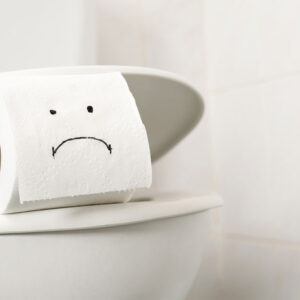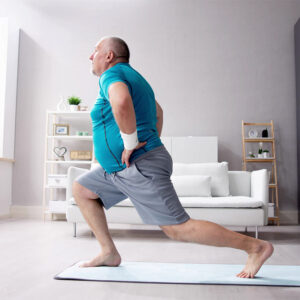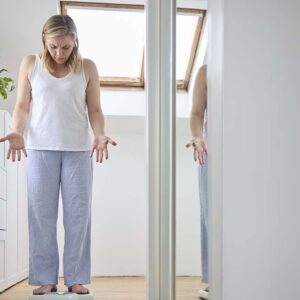
Surprising Juice Lowers Blood Pressure, Improves Heart Health
- New research reveals this juice can boost your heart health and lower blood pressure
- Discover how only a few ounces a day can tell heart failure to “beet” it!
- Plus, a few easy ways to start enjoying this hearty juice today!
Dear Living Well Daily Reader,
“Actually, that tastes really good! How did you make it?!?”
Over the weekend, I had my friend try a new type of juice. Due to its magenta color and earthy smell and the fact that he’s not one to try new “health” foods with excitement, it was quite the challenge to get him to take the first swig.
But he was happy he did!
In fact, he loved this heart-healthy concoction so much, he finished the entire glass and asked if I would make him another one. So I did, partially because I was jazzed that he liked a healthy treat and also because it’s good for his heart health.
And I made myself one too because a recent study shows that this cardiovascular supportive tonic may protect me well into old age. Maybe more so than my friend.
![]() “Beet” It, Heart Failure!
“Beet” It, Heart Failure!
So what was this earthy delight we were so enjoying?
Beetroot juice.
And recent research shows that folks who drink beet juice may have a significantly lower risk of a heart issue called heart failure with preserved ejection fraction (HFpEF). HFpEF happens when the left chamber of the heart pumps with each beat. This heart malfunction happens mostly in older women.
The most prevalent symptom of HFpEF is exercise intolerance or shortness of breath and fatigue accompanying a normal exertion level. And according to Wake Forest Baptist Medical Center, where the research was conducted, it’s the “most rapidly increasing cardiovascular disorder” in the U.S.
It’s thought that beetroot juice is heart-protective for people with HFpEF due to its high content of antioxidants and naturally occurring nitrates, which can improve blood flow.
To shed some light on its potency, scientists performed a randomized, double-blind safety study on 19 participants with HFpEF to see if beetroot juice could help boost exercise tolerance.
First, blood pressure and aerobic endurance were measured in the participants. Next, they were split into groups that received either beetroot juice over the course of a week, or a single beetroot juice dose. After the dosing, the scientists tested the participants’ aerobic tolerance and blood pressure again.
Those taking the single dose of beetroot juice showed no improvement.
However, the daily doses of beetroot juice improved participants’ aerobic performance by 24 percent in just one week. This means that drinking beetroot juice daily may help have a significant impact exercise endurance and heart health!
Plus, the juice also reduced resting systolic blood pressure by 5–10 mmHg.
Dalane Kitzman, MD, professor of internal medicine at Wake Forest Baptist and senior author of the study, reports:
Although larger trials need to be conducted, these initial findings suggest that one week of daily beetroot juice could be a potential therapeutic option to improve aerobic endurance in patients with HFpEF, which has implications for improving everyday activities and quality of life.
While this is great news for everybody, it may be most significant for women, since they have a higher chance of suffering from HFpEF.
And that’s why I will continue to drink my beetroot juice every morning. You should too! Here’s how to get started.
![]() Juice Your Way to a Healthier Heart
Juice Your Way to a Healthier Heart
If you have a mechanical juicer, follow the instructions in your owner’s manual.
But if you’re juicer-less like me, there’s still an easy way to get fresh beet juice. But be warned, juicing a beet can be a messy job.
The first thing you’re going to want to do is cover your work surface with wax paper or plastic wrap and put on some gloves.
Then finely grate one bunch of beets onto a cheesecloth-lined surface. Be sure to have wax paper under the cheesecloth. There is no need to peel the beets, but be sure to wash them thoroughly. The finer your grate, the more juice you will get.
Collect the grated beets in the cheesecloth and tightly twist until the top is closed. Squeeze the juice into a large glass storage container.
This juice can be stored in your fridge for up to three days. And since you only need a few ounces to get your heart juices flowing, you only need about 2½ shots a day!
If juicing your own beets isn’t your thing, there is an easy shortcut. Beetroot powder is available. All you have to do is add it to water and voilà! You’ve got all the health benefits and none of the mess. Well, unless you spill it.
While I would like to say I juice fresh beets every morning, I don’t always have the time. I use the beetroot powder and find it just as satisfying and delicious as the fresh stuff.
Vitacost has several brands to choose from, but I prefer Starwest Botanicals. Click here to check it out.
Live well,

Natalie Moore
Managing editor, Living Well Daily
Sources
[2] How to Peel and Juice a Beet
Written By Natalie Moore
Natalie Moore is a dedicated health researcher with a passion for finding healthy, natural, and science-based solutions. After a decade of direct healthcare experience in western and natural medicine, she was involved in public health research before joining Living Well Daily.
View More Free Articles
Is A Home Blood Pressure Cuff Worth the Money?
We all know that keeping blood pressure under control is crucial for heart health. If you’re like most people, you get yours checked every year at your annual physical. But should it be looked at MORE often? And is a home blood pressure cuff worth the investment? Keep reading to find out… I’ll get right...
Is Aspirin Really a Colon Cancer Fix? (Not So Fast!)
Stop me if you’ve heard this one before. Scientists discover a pill that might help prevent a serious disease. Sounds great, right? Well, not so fast. The latest “miracle cure” making headlines is none other than good old aspirin, which researchers now claim might help reduce colorectal cancer risk in people with unhealthy lifestyles. But...
Mailbag: Diarrhea Remedies That Really Work
“I have had diarrhea for 6 months. I’m going crazy and don’t know how to stop it! Please help!” – Can’t Stop Running Dear Can’t Stop, Few things disrupt life like battling a bout of diarrhea. Diarrhea is typically defined as having three or more loose, watery stools daily. If you experience this for over...
Take the SHORTER Path to Dramatically Better Health
Are you tired of fitness gurus preaching the virtues of 5 AM workouts and pushing Olympic-level training regimens? Their narrative can feel exhausting and entirely unattainable. But before you toss in the towel completely, I’ve got news that might just put a spring back into your step. A groundbreaking new study reveals that the key...
Unexpected Perks of Your Coffee Habit Revealed!
We all know that the first cup of coffee in the morning can FEEL like a lifesaver. But what if it might actually BE saving your life? A groundbreaking new study suggests that your daily coffee habit could be protecting you from not just one but multiple chronic diseases. Let’s pour over this fascinating research…...
The TRUTH About Diabetes Drugs and Brain Aging
You’ve probably seen the gushing headlines… Most say something like, “Common diabetes drug protects the brain against aging!” And let’s face it, that sounds fantastic. After all, who doesn’t want to keep their brain young and in tip-top shape? The headlines refer to the results of a new study that suggests the widely prescribed type...
Hidden Smartphone Danger Puts You at Risk
Remember when we thought cell phones were just something for young folks to obsess over? Back when we were convinced they were nothing more than a passing fad? Well, times certainly have changed. Now, most people… including many of us older folks… have jumped on the smartphone bandwagon. Heck, some of us are practically as...
Preserve Your Mobility with “Agile Aging” Exercises
Aging has a way of humbling us. You lose hair where you want to keep it—and often end up growing it where you don’t. With every passing year, your eyesight fades, and your waistline expands. And as your once quick pace begins to slow, you fear developing the dreaded “senior shuffle.” But here’s the thing....
Yes, Lazy Saturday Lie-Ins Can BOOST Your Health
Are you burning the midnight oil during the week and catching up on sleep on weekends? Well, I’ve got some news that might help you feel less guilty about those lazy Saturday mornings. A new study suggests that weekend lie-ins might be doing far more than just helping you feel refreshed. Experts say they could...
Mailbag: 7 Hidden Culprits Behind Your Weight Gain
“Why am I gaining weight, even though I am watching what I am eating?” – Battling the Bulge Dear Battling, Gaining weight when you’re not trying to is frustrating. And it just gets worse as we age… often regardless of our diet. The truth is that various factors can promote weight gain even when you’re...









